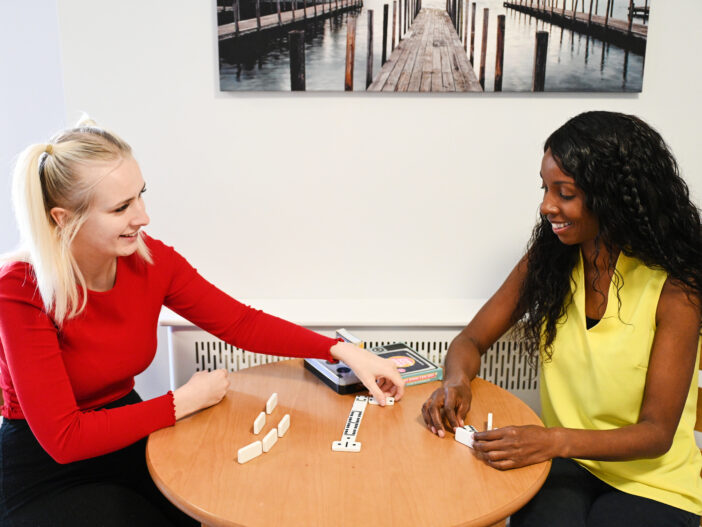Predictability, coping and autism – Raj, Specialist
As part of World Autism Awareness Week, our specialist Raj discusses predictability, coping and autism.
Supporting autistic people across our many services and interacting with their support team over the years has been so informative and thought provoking. Understanding every individual and providing the right support has made a huge difference in many autistic people’s lives. This has allowed staff to understand and provide effective support by reducing anxieties and managing behaviours relating to predictability and uncertainty.

I have spoken to many colleagues and observed them supporting autistic people who had problems with anxiety and unpredictability. The response from staff has been great. By understanding autism and how it impacts on people’s predictability has been amazing.
Deborah Lipsky says:
I can’t emphasise enough how critical it is to understand that staying on a script is the sole means of keeping anxiety at a minimum. Even the smallest breach becomes a crisis because all we register at that moment is unpredictability. We fear unpredictability above all else because we are out of control of our environment.
So let’s think about predictability.
Why can balloons cause anxiety for many autistic people? According to Dr Temple Grandin (an autistic person and spokesperson), balloons always terrified her, but the way she overcame that fear was by understanding the predictability.
Temple started by poking a small balloon with a pen which produced a soft sound. She then worked her way up to bigger balloons which naturally had louder pops.
A lot of autistic people say that, if they can initiate the sound, they are more likely to tolerate it. The same is true if they know the sound is coming; fireworks set off randomly down the street could be shocking, but fireworks set off at Halloween Nights is capable. acceptable.
Peter Vermeulen, a renowned autism speaker and researcher, states that the human brain does not process, instead it predicts what is going to happen – an example is why we’re unable to tickle ourselves.
The best way of managing behaviours, relating to noise is not to completely eliminate sounds, but to make sounds predictable and controllable. However, no one has control over the unpredictability of sound, so if a person is supported to eliminate a sound which is causing distress, this might work on a short term, but not on a long term.
Another example of autistic people struggling with unpredictability may be after a speech or concert where people start clapping. It would be beneficial if at the end of an event, the audience were provided instructions of when to clap and how long for.
This gives predictability and allows autistic people to accommodate the unpredictability. (We have to bear in mind that given all predictabilities some autistic people would be hyper sensitive to sound and might have distress)
Staff teams at our autism services are advised to use visual predictors (where ever applicable) to highlight which staff members are on shift, what activities have been planned and for how long etc. This could help autistic people manage their anxiety.
Any changes to plans are informed in advance, to manage behaviours. Now and Next charts with timers also helps avoid uncertainty. Staff also provide structure, order and predictability, and help those they support cope with the uncertainties of daily life.
The world may be a very unpredictable and confusing place to autistic people – they often prefer to have a daily routine so that they know what is going to happen every day. They may want to always travel the same way, or eat exactly the same food for breakfast.
The use of rules can also be important and beneficial. It may be difficult for an autistic person to take a different approach to something once they have been taught the ‘right’ way to do it.
Sometimes minor changes such as moving between two activities, can be distressing. For others, big life events such as going on holiday, starting or changing school, moving house or even Christmas day, which create sudden changes may cause anxiety.
Some autistic people have daily timetables so that they know what is going to happen and when. However, the need for routine can extend beyond this. You might see:
- changes to the physical environment (such as the layout of furniture in a room), or the presence of new people or absence of familiar ones, being difficult to manage
- rigid preferences about things like food (e.g. only eating food of a certain colour), clothing (e.g. only wearing clothes made from specific fabrics), or everyday objects (e.g. only using particular types of soap or brands of toilet paper)
- a need for routine around daily activities such as meals or bedtime. Routines can become almost ritualistic in nature, having to be followed precisely with attention paid to the tiniest of details
- verbal rituals, with a person repeatedly asking the same questions and needing a specific answer
It is very important we support autistic people with predictability and make them cope with their living environment. Find out more about how we support autistic people.

 Views
Views 

